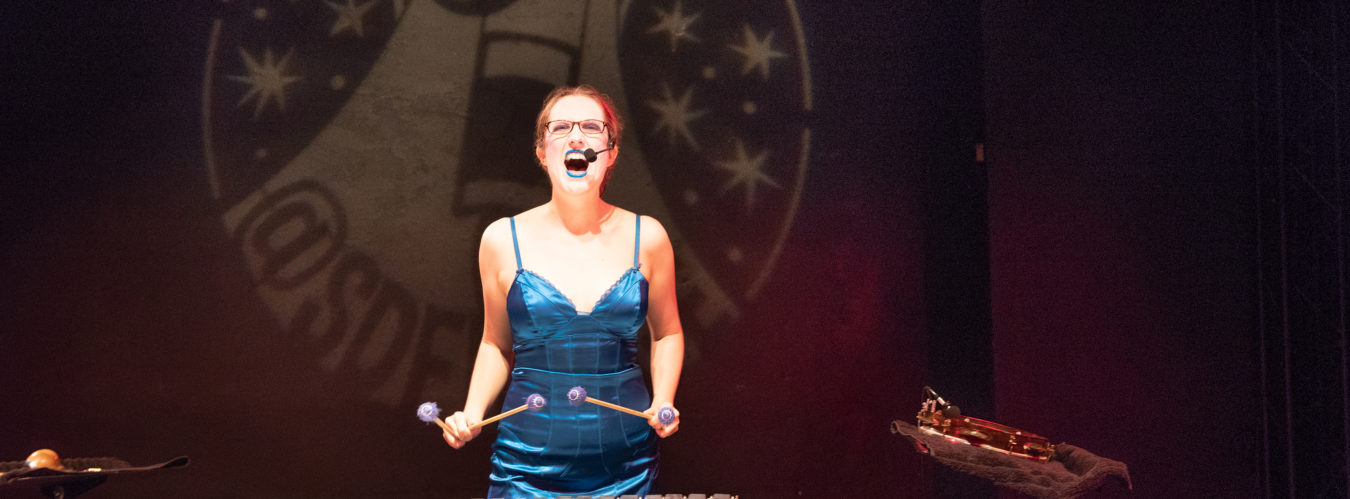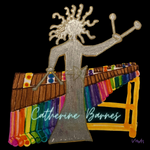Here is the story behind La Línea. You can listen to it or download it here on my bandcamp page.
“I can’t go to New York with you. Because I don’t love you. And if I went with you, it would give you the wrong idea.”
I was sitting across from him at La Casa del Mole in Tijuana. I hadn’t seen him in about four months. The last time I saw him, he had been rocking the mexistache he grew for Mo’vember. I hadn’t liked it at all until we went dancing at Las Pulgas, the Tijuana club with five different dance floors that makes Mos Eisley look like Starbucks. He held me from behind while we danced, and I could feel his mustache on the back of my neck; I quickly understood the benefits it offered even if it wasn’t the most pleasant thing to look at. But he had shaved it.
I must have gotten up and gone to the bathroom after he said that. I had to do that at least three or four times throughout the course of our meal, because I felt like I needed to throw up, and I also didn’t want him to see me cry. I was wearing a tight pink dress with a zipper down the front that I had opened enough to show my black lace bra. I had on fishnets and high heeled boots because I knew he liked them – but to be honest, I really didn’t; I often worry that I’m not feminine enough because I hate high heels. I was also wearing too much makeup – another reason I wouldn’t let myself cry in front of him. I stood in front of the colorful ceramic sink dabbing my red eyes with a tissue and trying to take deep breaths.
When I walked back out of the bathroom and sat down, a marimba had begun to play along with an electronic backing track. It was loud and garish – like circus music.
“I need for you to understand how hard this has been for me,” I said. “I miss you so much. Every single day I have to struggle not to pick up the phone and call you.”
“Well, now I’m scared.” he said.
“That’s a right way to feel,” I said. “But I need for you to understand that this has hurt me. It has affected my job. It has affected my health. It has affected my friendships.”
“So what do you want from me?”
“I want for you to apologize.”
“Okay. I’m sorry. Do you feel better?”
I really didn’t.
The conversation went around in circles for a few more minutes. Finally I told him to pay the bill and take me back to the border. I went to the bathroom one more time and shoved a few wads of toilet paper into my purse. The karaoke circus marimba played on. I followed him out to his red Mitsubishi Lancer with the gold phoenix sticker on the back. He had an image of a guy with a mustache in a hat dangling from his rearview mirror – probably a Heisenberg drawing from Breaking Bad. My dad watches that show all the time; why do men like it so much?
I wanted to ask, but I didn’t. I didn’t say anything. I tried not to think about the fact that it would be the last time I would ever be in his car. I tried not to remember the first time we had kissed in those very seats several months earlier. I watched the roundabouts, pharmacies, and monuments of Tijuana pass by as we sped toward the border. We passed a park where several girls in their quinceñera dresses fluttered like butterflies as they posed for pictures. My eyes filled with tears. I shuddered as I tried to keep the sobs from erupting. Finally he stopped the car next to a concrete barrier. “This is as far as I can go,” he said. I opened the door. I slammed it shut. I walked away as fast as I could in those godawful high heeled boots feeling the fishnet stockings dig into my feet with every step. I did not turn around.
It was Father’s Day weekend, and the general public line stretched almost all the way down the sidewalk. I took my place at the back of the line, and I let the tears flow down my face – clear at first, then black and green as my mascara and eyeshadow started to come off. I went through the toilet paper from the bathroom at the restaurant within the first twenty minutes, and soon snot dripped down my face. The older gentleman in front of me turned around and asked if I was all right. I told him I was. I read Brené Brown’s Daring Greatly on my cell phone to try to distract myself; the irony was not lost on me.
I’m not sure how long I stood in line; it was at least an hour. Probably closer to an hour and a half. It felt like two hours. I cried the entire time. I felt ashamed; why was I crying when I had the privilege to be able to cross the border in the first place?
The CBP agent asked where I had been and where I was going. She swiped my passport. “I hope the rest of your day goes better,” she said. And then I walked back out into the late afternoon sunshine. I smelled the sanitized American air and heard the clang of the San Ysidro trolley. As the sun set, the clouds turned pink and orange, and I thought of the girls in the park in their dresses. I was back on my side of the fence – but I was not done crying.
About two weeks later, I was in Boston visiting my cousin. I had been in New York, and I took the Bolt Bus down to see her. She’s married – all of my cousins on both sides of the family are. Her husband is Hungarian, educated, cute, and quiet. She took her engagement ring off and left it on the kitchen table once; I tried it on when she wasn’t looking.
On my last day in Boston, she took me to Walden Pond. I wanted to be excited; I had read Thoreau’s book in high school. I waded out into the cold water while my cousin sat in the sun. Tears pricked my eyes; I didn’t want her to see me cry. I didn’t want to have to explain.
There was a crowd that day; it had never occurred to me that Walden Pond might be an actual place that people go for recreation and not just a historical hermit hole. Over the sound of the people and the gentle motion of the water, I started to hear trumpets. They played a sad melody in a minor key – but over a salsa rhythm.
I got out of the water. I knew I needed to write that song – so I did.

